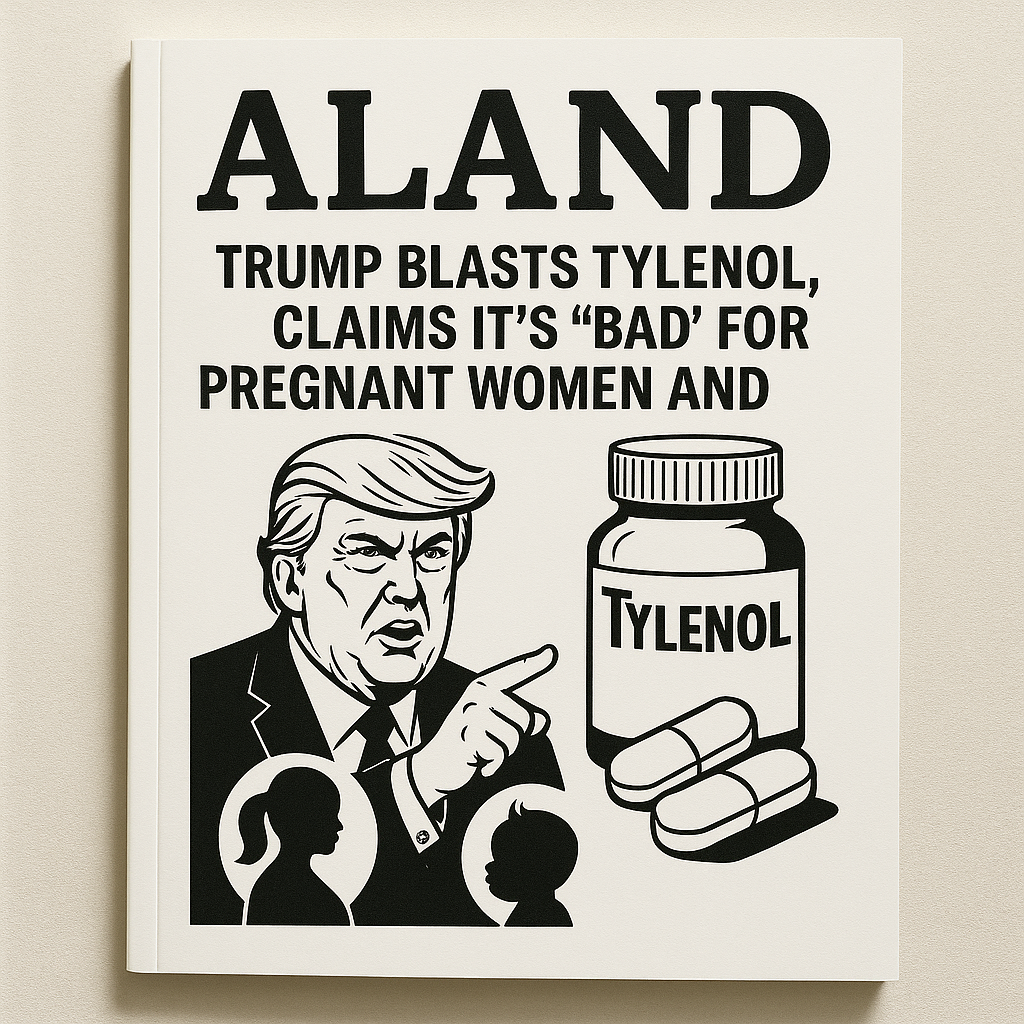Trump Blasts Tylenol, Claims It’s “Bad” for Pregnant Women and Children
Published Date: 24th Sep, 2025
“The way I see it, taking Tylenol is not good,” Trump said during a press event, repeating his admonition multiple times. He also questioned standard vaccination schedules and floated broader theories about rising autism rates.
Medical Community Reacts with Alarm
Health experts and medical associations swiftly denounced Trump’s claims as unsupported and dangerous. The American College of Obstetricians and Gynecologists called his statements “irresponsible,” emphasizing that Tylenol remains one of the few pain relief options generally considered safe during pregnancy when used correctly.
Researchers note that while some observational studies have found weak associations between acetaminophen use in pregnancy and neurodevelopmental outcomes, none have established causation. Confounding factors—such as maternal illness or genetics—are likely explanations for any observed correlations.
In one prominent study from Sweden involving millions of births, when siblings were compared (one with prenatal acetaminophen exposure, one without), the supposed link to autism disappeared—suggesting noncausal associations.
Political and Market Fallout
Tylenol’s parent company, Kenvue, faced immediate stock pressure after Trump’s remarks. The company defended its product, citing decades of research and safety assessments.
Meanwhile, the Trump administration's health team, including HHS Secretary Robert F. Kennedy Jr., has been planning a broader review of autism’s causes—potentially linking acetaminophen and micronutrient deficiencies (e.g. folate) to neurodevelopmental disorders.
Insiders say Trump’s unfiltered statements may have overridden his advisers, expanding a narrative that aligns with vaccine-skeptic elements in his circle.
What It Could Mean
-
Public fear and confusion: Pregnant women might avoid effective medication out of fear, leading to untreated fever or pain—both of which carry risks for mother and fetus.
-
Scientific scrutiny in the spotlight: Researchers warn that policy or public messaging should not rest on observational correlations, absent strong causal evidence.
-
Legal and reputational stakes: Past lawsuits linking Tylenol to autism have largely failed, but renewed public claims could reignite litigation or regulatory pressure.
-
Political signaling: The move may resonate with parts of Trump’s base that question mainstream public health doctrine, reinforcing his position as a disruptor.
As the debate rages, one thing is clear: Trump’s denunciation of Tylenol has unleashed a fierce divide between political messaging and scientific consensus. Whether his claims turn into policy or fade under scrutiny remains to be seen.
Date: 24th Sep, 2025

